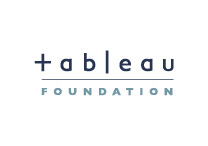
Global Health Solutions in the Context of Climate Change
There is no longer any debate that malaria is climate-sensitive. One effect of a warming planet, changing rainfall patterns, and unpredictable extreme weather events is to complicate malaria elimination efforts… particularly throughout sub-Saharan Africa, where the disease already kills a child every 2 minutes.
Forecasting Healthy Futures (FHF) is a growing coalition of global health, technology, and public sector partners coming together to bring greater attention to the inequities at the intersection of global health and climate change among policy makers and thought leaders across sectors and to promote proactive, resilient solutions that use integrated data and artificial intelligence to anticipate and mitigate the worst health effects of a warming planet.
FHF's Institute for Malaria and Climate Solutions (IMACS)

The Institute for Malaria and Climate Solutions (IMACS) is a virtual center of excellence established to advance the discipline of weather-informed malaria prediction and planning and to support its integration in malaria control programs worldwide.
PARTNERS AND COLLABORATORS
Lending their support and expertise, Forecasting Healthy Futures partners and collaborators combine their distinctive health, data, policy and weather expertise—and build on proven strategies to test and scale this innovative model.
BACKGROUND
The world has made enormous progress addressing the threat of mosquito-borne diseases. The global campaign to end malaria, for example, is one of the great public health successes of our time: Since 2000, 7 million lives have been saved and more than 1 billion cases have been prevented.
Yet despite the tremendous progress, mosquito-borne diseases, including malaria, dengue, chikungunya, yellow fever, and Zika, remain a major global health challenge that disproportionately affects the world’s most marginalized populations. These diseases are also climate-sensitive: changing weather patterns are introducing new challenges in efforts to effectively prevent, control, and eliminate them. For example, cyclones or heavy rains can increase the risk, timing, location, and severity of disease, and prevent access to life-saving health interventions.
One effect of a warming planet, changed rainfall patterns, and unpredictable extreme weather events is to worsen malaria, particularly throughout sub-Saharan Africa, where the disease already kills a child every 2 minutes and children under 5 and pregnant women are most vulnerable.
As extreme weather events become more commonplace, there is increased urgency to anticipate and accelerate progress against mosquito-borne diseases and to mitigate their impact on those most at-risk.
Support Forecasting Healthy Futures:
GET IN TOUCH
To learn more about global and MNM efforts to end malaria, please reach out.



